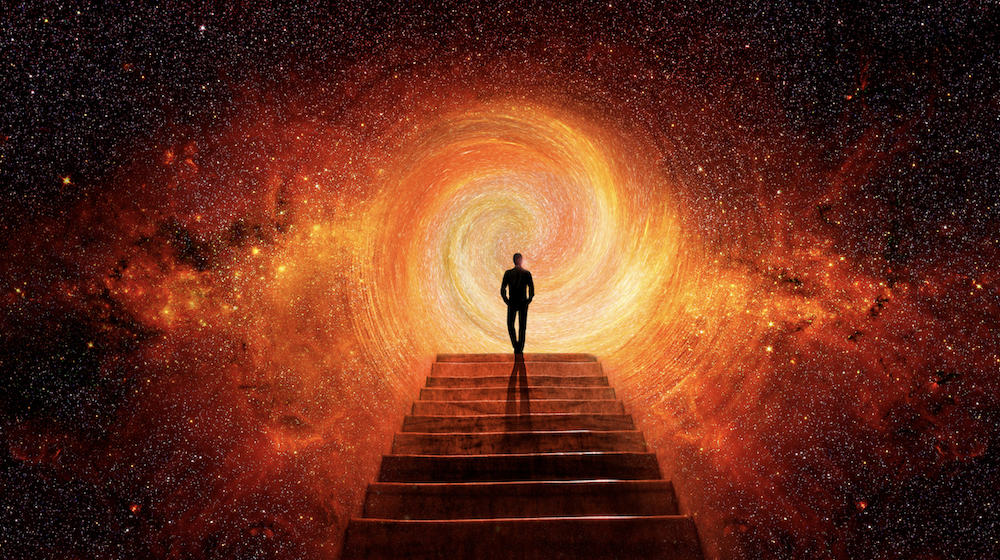“Right now all of our eggs are in one basket,” explains meta-geneticist Christopher E. Mason. “And the basket is called Earth.”
Our home plate and solar system are not tenable long-term locations for humanity’s HQ. The first step to moving beyond this place is to learn how to colonize extraplanetary bodies, specifically Mars. If in the next 500 years we’ve developed a species-wide strategy for living off-planet, we’ll greatly improve the chances of maintaining humanity beyond the limits of Earth’s capacity to keep us happy.
But Dr. Mason also grapples with another testy subject: There have to be limits to how far we can go, right? At some point the universe is bound to either keep expanding or collapse in on itself. No matter how spacefaring we are, humanity will be in deep trouble at that point. That’s why the Mason Lab’s extra-long-term goal is to figure out whether there’s some sort of preventative option for humanity to prolong the universe, assuming we manage to keep ourselves alive long enough to use it.
—
TEDMED is the independently owned and operated health and medicine edition of the world-famous TED conference, dedicated to “ideas worth spreading.” Created by TED’s founder, TEDMED convenes and curates extraordinary people and ideas from all disciplines both inside and outside of medicine in pursuit of unexpected connections that accelerate innovation.
Our annual event brings the world together to focus on what’s new and important in health and medicine. We forge partnerships with industry leaders, medical research institutions, think tanks, government agencies and foundations, to ensure that cutting-edge biomedical thinking is shared across disciplines and made accessible to the public at large.
Chris Mason: Right now all of our eggs are in one basket and the basket is called Earth. We can't stay in the solar system forever. It's just a fact. So if we do stay here, we would essentially, you know, the sun would essentially engulf the inner planets. And even if we've achieved perfect world peace and there's no hunger, there's no poverty, there's no disease, it will all be gone if we're still here. So some of the first missions to Mars, obviously we have multiple satellites already in orbit, and so some of the first missions are really planned for within the next 15 years. But there are active and long-term plans in NASA to have people get colonies there, living there whether it's either asteroids, moons or potentially Mars. The timeline goes up to 200 or 300 years out is when we start to begin some of that work of actually not just sending exploratory missions, but people actually living there. I think this is not only sort of what is the natural next step of really human evolution and exploration, but I would even argue is our duty as a species because we're the only species that has an awareness of extinction. So I think it's the responsibility to preserve not only our species, but actually all species.
If you keep going further out, eventually you go to Mars, you go to other solar systems, it's really the question just begs the question back on itself. You can't keep going and going and going. At the end of the time, eventually the universe will either keep expanding, and so they'll be too far apart, or it may collapse back in on itself. And so I think there the last question of my long-term plan for the laboratory is, which of course we'll all be long dead before, but is do we prevent the universe from collapsing back in on itself in the hopes that life will arise anew or do we actually use our ingenuity and technological acumen to prevent the universe from collapsing and at that point maybe we'll be controlling gravity. I think we would have to probably prevent it and maybe carve out a small area of the universe that wouldn't collapse or would somehow survive, which we have no idea how that's going to happen. I think the ethical question we can think about today is how much and to what degree do we literally alter the universe to preserve ourself? And I think life and gravity are the only two things that prevent expansion of matter in the universe and decrease entropy. And so I think we have a responsibility to try and maybe keep ourselves alive. So I think not only should we keep ourselves alive even at the end of the universe, but we may have no choice because I think that's what we usually do as a species.






